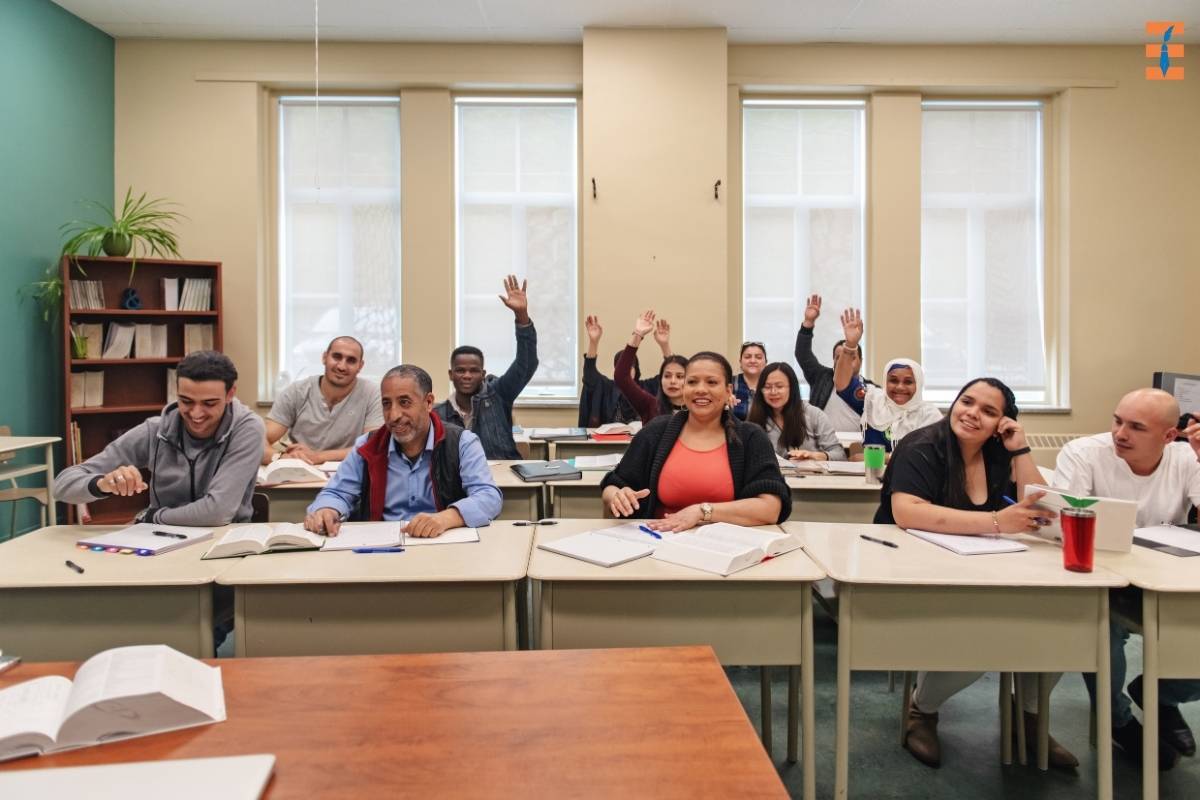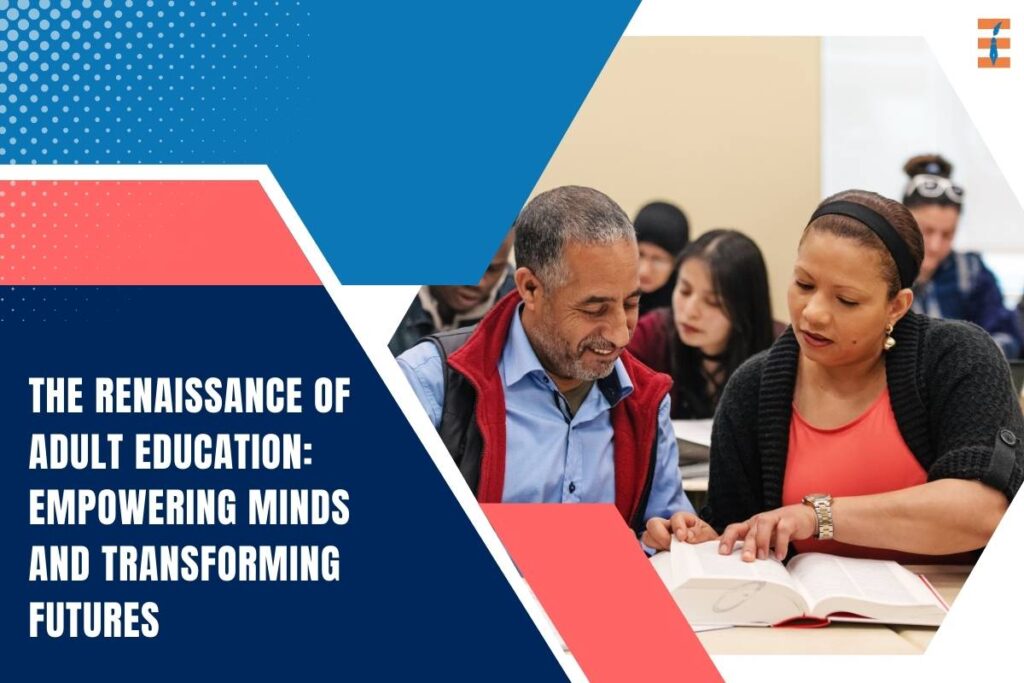In today’s fast-changing world, education isn’t just for kids anymore. More and more adults see the importance of learning new things and improving their skills. They do this to stay competitive at work, achieve their personal goals, and keep up with how society is changing. This change has sparked a revival in adult education. It’s created lots of different chances for adults to learn and grow throughout their lives.
Understanding the Evolution of Adult Education
The term “adult education” encompasses a wide spectrum of learning experiences tailored specifically for adults. Unlike formal education received during childhood and adolescence, it is typically voluntary and often pursued for personal or professional development. It serves individuals of varying ages and backgrounds, from recent graduates seeking specialized skills to mid-career professionals looking to pivot into new fields, and retirees exploring newfound passions.
Historically, education for adults has evolved alongside societal needs and technological advancements. Early programs primarily focused on basic literacy and vocational training for industrial jobs. However, as economies shifted towards knowledge-based industries and globalization accelerated, the demand for continuous learning surged. Today, education for adults encompasses a vast array of disciplines, including but not limited to, professional certifications, personal enrichment courses, lifelong learning programs, and online education platforms.
The Role of Adult Education in Career Advancement

One of the primary drivers behind the growth of education is its pivotal role in career advancement. In a competitive job market where skills quickly become outdated, lifelong learning has become essential for professionals aiming to stay relevant and progress in their careers. Industries such as technology, healthcare, finance, and digital marketing particularly benefit from professionals who continuously update their skills through programs.
For instance, a software engineer may enroll in coding boot camps to learn the latest programming languages, while a healthcare administrator might pursue advanced certifications in healthcare management to qualify for leadership roles. These targeted educational opportunities not only enhance technical expertise but also cultivate critical thinking, problem-solving, and adaptability—traits highly valued in today’s dynamic workplace environment.
Meeting the Diverse Needs of Adult Learners
The landscape of education is as diverse as the individuals it serves. Institutions and organizations around the world have responded to this diversity by offering flexible learning formats and specialized programs tailored to meet the unique needs of adult learners. Whether through evening classes at community colleges, weekend workshops at professional development centers, or fully online courses accessible from anywhere in the world, education has become increasingly accessible and accommodating.
Moreover, the content of adult education programs spans a wide range of subjects, from technical skills like data analysis and project management to creative pursuits such as photography and creative writing. This breadth ensures that individuals can pursue their passions, explore new interests, and acquire the knowledge necessary to thrive in their chosen fields.
Challenges and Opportunities in Adult Education

Despite its many benefits, adult education faces several challenges that must be addressed to ensure equitable access and quality learning experiences for all. Financial barriers, time constraints, and the digital divide are among the most significant hurdles faced by adult learners. High tuition costs, coupled with limited financial aid options for non-traditional students, can deter individuals from pursuing further education. Additionally, balancing work, family responsibilities, and educational commitments requires careful planning and support systems.
Furthermore, the rapid pace of technological innovation presents both challenges and opportunities for education. While online platforms and digital resources have democratized access to learning, they also require learners to navigate an increasingly complex landscape of options and technologies. Ensuring that education programs remain relevant, engaging, and inclusive in a digital age is crucial to maximizing their impact and reach.
The Impact of Lifelong Learning on Personal Growth
Beyond professional development, adult education plays a transformative role in fostering personal growth and lifelong fulfillment. Learning new skills, exploring diverse perspectives, and engaging with communities of like-minded individuals can enrich one’s life immeasurably. Whether it’s mastering a new language, delving into the humanities, or honing practical skills such as cooking or woodworking, it empowers individuals to pursue their passions and lead fulfilling lives.
Moreover, the cognitive benefits of lifelong learning are well-documented. Continued intellectual stimulation through adult education has been linked to improved memory, enhanced problem-solving abilities, and reduced risk of cognitive decline later in life. As such, investing in education throughout adulthood is not just a means to an end but a pathway to maintaining mental acuity and overall well-being.
The Future of Adult Education: Trends and Innovations

Looking ahead, the future of education promises continued innovation and adaptation to meet evolving learner needs and societal challenges. Emerging trends such as micro-credentialing, personalized learning pathways, and artificial intelligence-driven adaptive learning platforms are reshaping the landscape. Micro-credentials, for example, allow individuals to earn certifications in specific skills quickly, demonstrating competency to employers without committing to lengthy degree programs.
Furthermore, the integration of AI and machine learning into educational technologies enables personalized learning experiences tailored to individual learning styles and preferences. Adaptive learning platforms can analyze learner data in real time, providing targeted feedback and content recommendations to optimize learning outcomes. These advancements not only enhance the effectiveness of adult education programs but also make learning more accessible and engaging for diverse audiences.
Conclusion
The resurgence of adult education represents a profound shift in how individuals approach learning and personal development throughout their lives. From advancing careers and acquiring new skills to nurturing personal passions and promoting cognitive well-being, serves as a cornerstone of lifelong learning. By embracing innovation, addressing challenges, and expanding access, stakeholders in education—whether institutions, employers, or policymakers—can ensure that continues to empower minds and transform futures in an increasingly complex and interconnected world.










